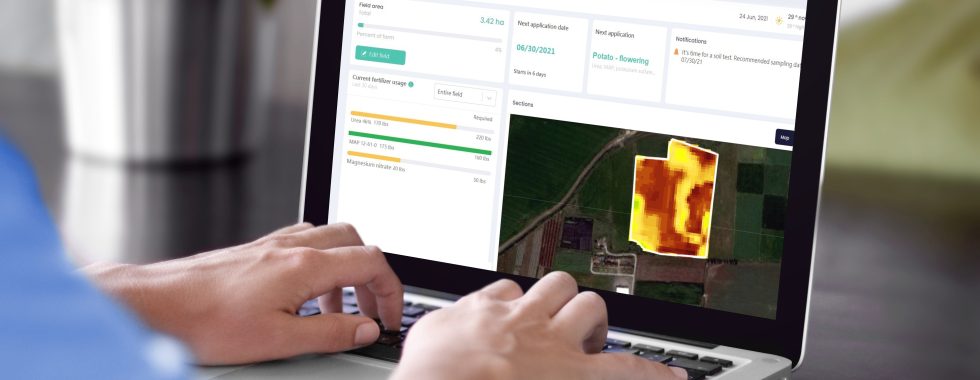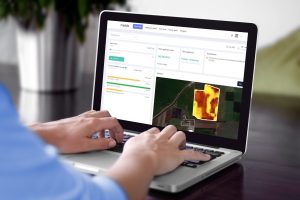How to Choose the Best Farm Management Software in 2025
In the fast-paced world of modern agriculture, adopting the right farm management software can be transformative. These platforms go beyond basic record-keeping, offering powerful tools to monitor, plan, and optimize your farm operations. However, finding the right solution tailored to your agricultural needs requires careful evaluation. Let’s explore the steps to identify the best farm management software for your farm while understanding the technological advancements driving innovation in this space.
Understanding the Role of Farm Management Software
Farm management software integrates advanced technology with traditional farming practices. These tools leverage precision agriculture techniques, including data analytics, IoT devices, and AI, to help farmers make informed decisions. Whether it’s tracking field health, predicting weather patterns, or managing resources, these platforms centralize vital information for actionable insights.
Choosing the right software isn’t just about features; it’s about finding a solution that aligns with your farm’s operational goals and future growth. The challenge lies in evaluating the vast array of tools available on the market.
Assessing Your Farm’s Unique Needs
Every farm is different, and a one-size-fits-all approach rarely works. Start by analyzing the specific requirements of your operation:
- Operational focus: Are you primarily managing crops, livestock, or a combination of both? Crop-oriented tools often focus on field mapping and pest management, while livestock-focused platforms emphasize herd health and breeding schedules.
- Farm scale: Larger farms often need more robust tools capable of handling multiple data points, while smaller farms may prioritize simplicity and cost-efficiency.
- Key challenges: Are you looking to reduce input costs, optimize yield, enhance sustainability, or comply with regulations?
The Technology Behind Farm Management Tools
Farm management tools today incorporate cutting-edge technologies to deliver efficiency and accuracy:
- Remote sensing and GIS mapping: Satellite imagery and drone technology allow farmers to monitor field conditions in real time. Tools using GIS mapping provide precise field data, helping identify problem areas and optimize planting schedules.
- IoT and smart devices: IoT-enabled devices like soil sensors, weather stations, and smart irrigation systems integrate seamlessly with farm management platforms, delivering real-time data to guide decisions.
- AI and predictive amalytics: Artificial intelligence analyzes historical and real-time data to predict crop health issues, pest outbreaks, or optimal harvest times. This allows farmers to act proactively rather than reactively.
These technologies empower farmers to make data-driven decisions, ultimately leading to improved efficiency and profitability.
Features to Prioritize
While technological capabilities are impressive, the best farm management software is one that offers practical features aligned with your goals. Look for tools that combine advanced functionalities with user-friendliness:
- Crop management tools: Platforms that track planting, growth stages, and harvest schedules while analyzing pest and disease risks.
- Resource optimization: Software that monitors input usage, such as water, fertilizers, and pesticides, to reduce waste and improve sustainability.
- Weather integration: Tools with localized weather forecasts and historical data to guide planting and harvesting decisions.
- Financial Insights: In-built financial management features to track expenses, project revenues, and analyze profitability.
- Mobile Accessibility: A mobile-friendly interface ensures farmers can access their data and tools anytime, anywhere.
Usability and Scalability
Even the most advanced software is only valuable if it’s easy to use. Many farmers abandon platforms because of steep learning curves or clunky interfaces. Consider:
- Ease of Onboarding: Look for tools that offer clear instructions, training resources, and responsive customer support.
- Mobile-Friendly Design: Most farm operations happen on the field. A mobile app or responsive platform ensures data is always accessible.
- Scalability: As your farm grows, so will your operational needs. Ensure the software can scale up to manage additional fields, livestock, or employees.
Evaluating Costs and Return on Investment (ROI)
While cost is always a consideration, it’s crucial to weigh the investment against the potential ROI. Farm management software can deliver measurable value by:
- Reducing Costs: Through efficient resource use and optimized labor management.
- Improving Yields: By providing actionable insights on planting, pest control, and irrigation.
- Enhancing Market Value: Tools that support compliance and traceability can help meet consumer demands for transparency and sustainability.
Integration with Existing Systems
Modern farms often use a variety of technologies, from smart equipment to supply chain tools. The right farm management software will integrate with these systems seamlessly. For example:
- IoT Devices: If you already use soil moisture sensors or weather stations, ensure the software can aggregate and analyze this data.
- Machinery Integration: Platforms that sync with GPS-enabled equipment can automate processes like seeding, fertilizing, and harvesting.
- Supply Chain Tools: Many farm management solutions also support inventory tracking and market integration, streamlining the farm-to-consumer journey.
Integration reduces redundancies and ensures all data is available in one centralized location for better decision-making.
Future-Ready Features
As agriculture evolves, so do consumer and regulatory expectations. Forward-thinking farm management tools incorporate features that prepare farmers for these changes:
- Traceability: Blockchain and other technologies provide transparent records of the farm-to-table journey, meeting increasing demands for accountability.
- Sustainability Metrics: Tools that monitor carbon footprints, water usage, and other environmental factors help farmers align with sustainability goals.
- AI and Automation: Predictive analytics and automated alerts ensure farmers stay ahead of potential challenges.
By selecting software with these capabilities, you can future-proof your farm while staying competitive in a rapidly changing industry.
If you’re ready to explore a farm management tool that embodies these principles, yieldsApp offers a powerful, user-friendly platform designed to optimize your operations and enhance decision-making.




